Table of Contents
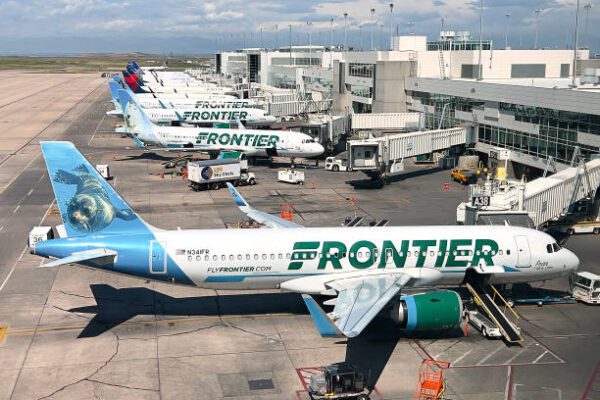
Frontier Airlines has become a buzzword in the American travel industry, often mentioned in conversations about budget travel, low fares, and cross-country flights. Known for its ultra-low-cost pricing model, Frontier Airlines has sparked both admiration and criticism among U.S. travelers. As one of the fastest-growing carriers in the country, it has managed to carve a niche for itself in an increasingly competitive market. But many people still ask the fundamental question: is Frontier Airlines worth it for U.S. travelers?
This guide aims to explore that question from every angle — analyzing costs, comfort, customer service, flight experience, policies, and more. Whether you’re a frequent flyer looking for affordable options or a first-time traveler planning a trip, understanding what Frontier Airlines truly offers is essential. In a world where airline experiences can significantly affect your travel plans, being informed can help you make the best decisions for both your budget and comfort.
As we delve into each aspect of the airline, we’ll evaluate its offerings in terms of value for money and convenience, with real-world traveler feedback, comparisons to competitors, and insights from travel experts. If you’re trying to weigh your options for domestic U.S. travel, this comprehensive guide to Frontier Airlines might be the deciding factor in your booking process. From carry-on fees to seating configurations, loyalty programs to route maps, we leave no detail unexplored in this thorough review of Frontier Airlines for U.S. travelers.
Overview of Frontier Airlines: What Sets It Apart?
Frontier Airlines is a Denver-based ultra-low-cost carrier (ULCC) that operates primarily in the United States, offering flights to over 100 destinations across North America. Its core value proposition is simple: fly cheap. But what does that mean in practice for everyday travelers? The airline strips down many amenities that legacy carriers include by default, such as in-flight snacks, seat selection, and carry-on bags. This business model enables Frontier to offer fares that are often dramatically lower than the competition.
For travelers who can pack light and travel without extras, these fares present significant savings. However, Frontier’s pricing structure requires a strategic approach. Fees can add up quickly if you’re not familiar with their policies, which means that your “cheap flight” can become pricey if you add a carry-on bag, select a seat, or change your itinerary. The airline’s “unbundled” pricing is designed for those who prioritize ticket price above all else. Still, it raises a major question for many: is Frontier Airlines worth it for U.S. travelers looking for both affordability and a comfortable flying experience?
The airline’s branding also features a unique touch—each plane sports an animal mascot on its tail, contributing to a more personable and eco-conscious image. Frontier is one of the few airlines that highlights its commitment to fuel efficiency and sustainability, claiming one of the youngest and most eco-friendly fleets in the country.
These distinctive traits appeal to a niche segment of eco-minded and budget-conscious travelers. As we assess Frontier Airlines in the context of value and practicality, it’s important to keep in mind that the airline appeals to a specific traveler profile—those who are flexible, cost-savvy, and willing to forgo frills for affordability. We’ll break down whether the trade-offs are worth it for domestic travel in the U.S. and explore how well Frontier stacks up against similar low-cost carriers.
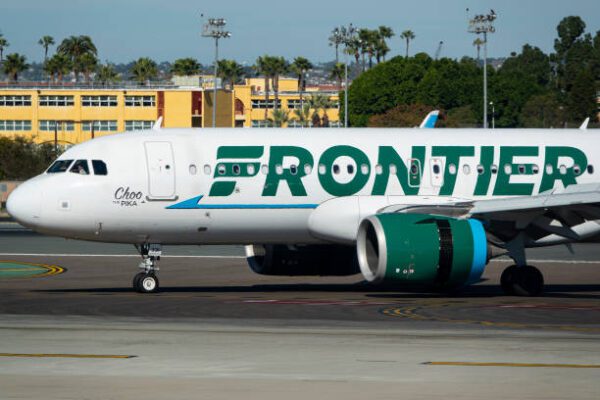
Pricing and Hidden Fees: What You Really Pay
The initial appeal of Frontier Airlines often lies in its eye-catching fare prices. It’s not uncommon to see one-way tickets advertised for under $50, which can be a game-changer for budget-conscious travelers or families planning vacations on a tight budget. But while the base fare might look attractive, it’s only part of the story. Frontier Airlines operates on an à la carte pricing model, which means nearly everything beyond the seat itself comes at an additional cost.
This includes carry-on luggage, checked bags, seat assignments, in-flight snacks, and even customer service interactions in some instances. For travelers unfamiliar with this model, the additional costs can lead to sticker shock by the time they reach the payment screen. This structure raises an important question: is Frontier Airlines worth it for U.S. travelers once all fees are taken into account? For example, bringing a standard carry-on bag can cost upwards of $40–60 each way, depending on when and how you pay for it. Seat selection? That can range from $17 to $50, depending on the route and seat type. Want to sit with your family or friends? That’s another fee.
This level of unbundling demands that travelers plan meticulously and calculate the total trip cost before booking. However, for experienced and strategic travelers who know how to navigate the fees, Frontier can still offer significant savings. If you’re flying solo, traveling light with only a personal item, and don’t mind being randomly seated, the base fare might actually be what you end up paying. The key lies in transparency and preparation.
Frontier Airlines even offers bundle packages like “The Works” and “The Perks,” which combine several services for a fixed price. These can be worthwhile if you plan on using multiple add-ons, providing better value than selecting items individually. For U.S. travelers evaluating affordability, it’s critical to understand how Frontier’s pricing works and plan accordingly to avoid surprises and maximize savings.
Seating and Comfort: What to Expect on Board
Frontier Airlines is often praised for its affordability, but what about the in-flight experience? One of the most commonly discussed aspects is seating—something that can make or break a traveler’s comfort, especially on longer domestic flights. Frontier aircraft are configured with “pre-reclined” seats, meaning you cannot adjust the seat back.
This might sound inconvenient at first, but it actually allows for more legroom and reduces potential disturbances from the passenger in front of you reclining. The seats themselves are relatively slim, designed for efficiency and weight savings, which supports Frontier’s eco-conscious mission. While the legroom is comparable to many other budget airlines, the padding on the seats is minimal, and there are no built-in entertainment systems, Wi-Fi, or power outlets. For some, these omissions are deal-breakers, especially on flights longer than two hours. Yet for others, the trade-offs are acceptable given the reduced fare.
But the real question remains: is Frontier Airlines worth it for U.S. travelers in terms of seat comfort and in-flight amenities? Travelers who value comfort may need to consider upgrading to stretch seating, which offers additional legroom for an extra fee. Frontier’s stretch seating can rival premium economy on major carriers in terms of space, although it lacks the service perks. Another consideration is cleanliness and upkeep. Many travelers report clean cabins and efficient boarding processes, thanks in part to the airline’s use of newer Airbus aircraft. Still, don’t expect luxury—this is a no-frills experience, and it’s designed that way to keep costs low.
If you come prepared with your own entertainment, snacks, and perhaps a neck pillow, the flight can be perfectly manageable, especially for shorter routes. Ultimately, comfort is subjective, and Frontier provides just enough to make the journey efficient, if not luxurious. For travelers whose primary goal is to get from point A to point B at the lowest cost, the trade-offs in seating and amenities are likely to be acceptable. Others may need to consider whether the reduced comfort aligns with their travel priorities.
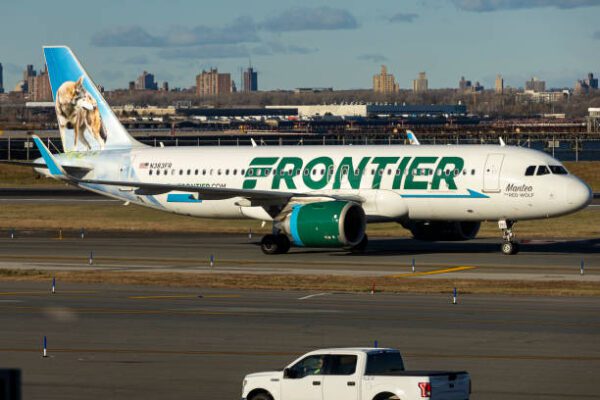
Customer Service and Travel Policies: Pros and Cons
Frontier Airlines is a mixed bag when it comes to customer service, with reviews that range from pleasantly surprised to extremely frustrated. Unlike full-service airlines that provide 24/7 call centers and dedicated agents, Frontier leans heavily on digital tools and self-service options. This can be a point of friction for travelers who prefer human assistance, particularly in cases of delays, cancellations, or rebooking. If you’re asking yourself, “Is Frontier Airlines worth it for U.S. travelers when things go wrong?”—the answer depends heavily on your comfort with digital support and your tolerance for minimal assistance.
Frontier’s website and mobile app provide tools for managing bookings, purchasing add-ons, and checking flight status, but navigating them can be cumbersome. Live customer support is limited, and phone assistance may come with fees or long wait times. Travelers have reported mixed experiences with staff at the airport; some commend the courteousness of the ground crew, while others highlight lack of empathy or poor conflict resolution. That said, the airline’s policies are clearly outlined, and passengers who take the time to understand the terms often have a smoother experience.
Flexibility is another consideration. Frontier does not offer refundable fares by default, and changes or cancellations can incur fees. However, its “Works” bundle includes refundability and no change fees, making it a safer bet for travelers with unpredictable schedules. Frontier has also introduced more flexible policies during recent times, especially in response to health-related travel concerns, although these are subject to change.
One area where Frontier excels is in punctuality. Many flights operate on time or even early, thanks in part to efficient turnaround times and newer aircraft. This is a crucial metric for business travelers or those with tight connections. Still, when disruptions do occur, the lack of a robust customer support infrastructure can be a serious drawback. For travelers who value attentive service and robust protection against travel disruptions, Frontier may not be the best fit. But for those who value price and can manage independently, the experience can be entirely satisfactory.
Routes and Availability: Where Frontier Can Take You
Frontier Airlines serves a robust network of destinations across the United States and select international locations, offering travelers significant geographic flexibility. With its hub based in Denver, the airline has established routes to major cities like Las Vegas, Orlando, Miami, Atlanta, and Chicago, as well as smaller regional airports that are often underserved by major carriers. This expansive route map enables travelers from various parts of the U.S. to access affordable flights, whether they’re headed for a business trip, vacation, or visiting family.
The airline’s route strategy focuses on leisure and price-sensitive markets, which makes it ideal for travelers looking to explore popular tourist spots without breaking the bank. Seasonal route expansions are common, particularly during holidays and peak travel times, giving passengers additional options based on demand. Moreover, Frontier Airlines is known for launching flash sales and promotional deals that make some destinations incredibly affordable if you’re flexible with your travel dates.
For travelers wondering “is Frontier Airlines worth it for U.S. travelers” who value choice and accessibility, the airline’s route availability is a strong advantage. However, the trade-off can be fewer daily flights on certain routes. This means less flexibility if you miss a flight or encounter delays, as rebooking options may be limited compared to legacy carriers. Planning with precision and considering alternate travel dates can help mitigate these limitations.
Another perk of Frontier’s expansive domestic network is the growing number of direct flights available, reducing layovers and overall travel time. The addition of more point-to-point routes means that travelers in smaller cities may avoid large hubs altogether, leading to quicker and more direct travel. For many U.S. travelers, this convenience adds to the overall value proposition.
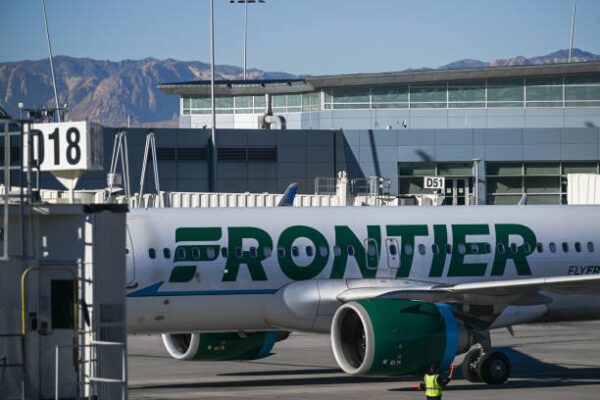
Frontier Miles: Loyalty Program Benefits
Frontier Airlines offers a loyalty program called Frontier Miles, designed to reward frequent travelers with points that can be redeemed for future travel. While the program is not as robust as those offered by major legacy carriers, it still provides meaningful benefits for those who fly Frontier regularly. The structure is relatively straightforward: miles are earned based on the fare paid rather than distance traveled, aligning with the airline’s revenue-based model.
For those wondering “is Frontier Airlines worth it for U.S. travelers” with loyalty in mind, the answer depends on how often you fly and how flexible your travel dates are. Redemption options are generous in terms of low point requirements, especially if you’re booking in advance or during promotional periods. Elite status in the program, known as Elite 20k, 50k, and 100k, provides benefits like priority boarding, free carry-on bags, family pooling of miles, and even free seat assignments for certain tiers.
Family pooling is one of the program’s standout features, allowing up to eight individuals to combine miles for faster redemptions. This is particularly beneficial for families or groups who travel together, maximizing rewards and saving money. Additionally, Frontier often runs promotional bonus offers for credit cardholders and frequent flyers, helping accumulate miles faster.
However, it’s worth noting that the program lacks some of the premium perks found in other airlines, such as airport lounge access or automatic upgrades. Also, miles can expire if there’s no account activity for six months, which can be a drawback for infrequent flyers. Despite these limitations, the Frontier Miles program still adds value, particularly for those who plan to fly Frontier multiple times a year.
Ideal Traveler Profile: Who Should Fly Frontier?
Not every airline suits every traveler, and Frontier is no exception. The ideal Frontier Airlines passenger is someone who prioritizes low costs, is flexible with their plans, and doesn’t mind sacrificing traditional amenities for a cheaper ticket. This includes budget-conscious travelers, students, solo flyers, and families looking for deals. If you can travel with just a personal item, skip the seat selection, and bring your own snacks, you’ll likely find excellent value in what Frontier offers.
Frontier also works well for travelers who book in advance and take advantage of promotional fares. These individuals tend to plan strategically and understand the fine print of airline policies. On the other hand, if you require flexibility, premium customer service, or the ability to change flights without incurring fees, a full-service carrier may be a better fit.
Families can also benefit from Frontier’s bundle packages and family mile pooling, especially for vacation travel. While traveling with children might necessitate extra add-ons, the total cost can still be lower than with other airlines, particularly when booked early. Business travelers might find the lack of in-flight Wi-Fi or lounges limiting, but for quick, affordable domestic trips, Frontier can be a viable option.
Ultimately, “is Frontier Airlines worth it for U.S. travelers” depends on your personal travel style, expectations, and priorities. Those who align with Frontier’s stripped-down, budget-first philosophy will likely appreciate the airline’s offerings, while others may prefer to pay more for added comfort and convenience.
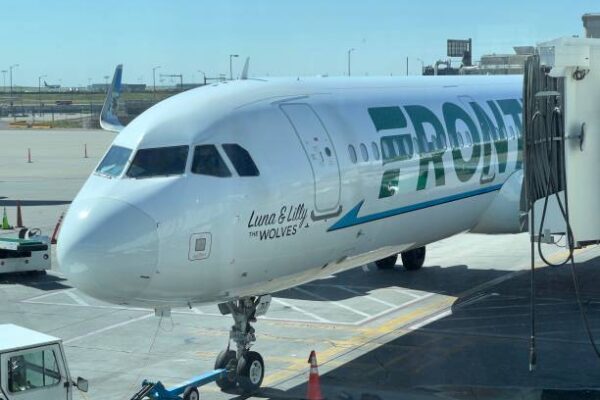
Is Frontier Airlines Worth It for U.S. Travelers?
After evaluating the key components — pricing, seating, customer service, routes, safety, and loyalty programs — one thing becomes clear: Frontier Airlines delivers exceptional value for a particular type of traveler. If you are budget-conscious, travel light, and are comfortable navigating a digital-first experience, Frontier can be an excellent choice. Its low fares, modern fleet, and expanding network make it particularly appealing for short domestic trips and planned getaways.
However, the airline is not for everyone. Travelers who expect premium comfort, personalized service, and maximum flexibility may find the trade-offs difficult to justify. The key is preparation. Understanding what’s included in your fare, what services cost extra, and how to best use Frontier’s bundles and loyalty program can greatly enhance your travel experience.
So, is Frontier Airlines worth it for U.S. travelers? For those who understand the ULCC model and travel accordingly, the answer is a resounding yes. With smart planning and clear expectations, Frontier can help you reach your destination affordably and efficiently, allowing you to spend less on your flight and more on what matters most — your experience at your destination.
Frequently Asked Questions
1. Is Frontier Airlines safe to fly with?
Yes, Frontier Airlines has a strong safety record and operates a modern fleet of Airbus A320 aircraft that meet all FAA regulations.
2. Does Frontier Airlines charge for carry-on bags?
Yes, Frontier charges for both carry-on and checked luggage unless you purchase a bundle like “The Works” or “The Perks.”
3. Can I choose my seat on Frontier Airlines?
Yes, but seat selection comes at an additional cost unless you have elite status or purchase a fare bundle.
4. How can I save money when flying Frontier?
Book early, travel light with only a personal item, and watch for flash sales. Also consider joining their Discount Den membership.
5. Is the Frontier Miles loyalty program worth joining?
It can be, especially for frequent travelers. You can earn miles based on dollars spent and benefit from rewards like family pooling and priority boarding.
6. What’s the best time to book Frontier Airlines flights?
The best fares are usually available 2–3 months in advance, especially for mid-week travel and off-peak seasons.
7. Does Frontier Airlines have inflight Wi-Fi or entertainment?
No, Frontier does not offer Wi-Fi or seatback entertainment as part of their cost-saving model.
8. What happens if my Frontier flight gets canceled?
You may receive a refund or be rebooked on the next available Frontier flight, though options can be limited due to fewer daily departures.
9. Can families fly comfortably on Frontier Airlines?
Yes, especially with family mile pooling and optional bundle packages, but you may want to pre-book seats together to ensure proximity.
10. Is Frontier Airlines worth it for long-distance domestic travel?
It can be if you’re looking for a budget-friendly option and are willing to plan carefully and purchase only the services you need.



